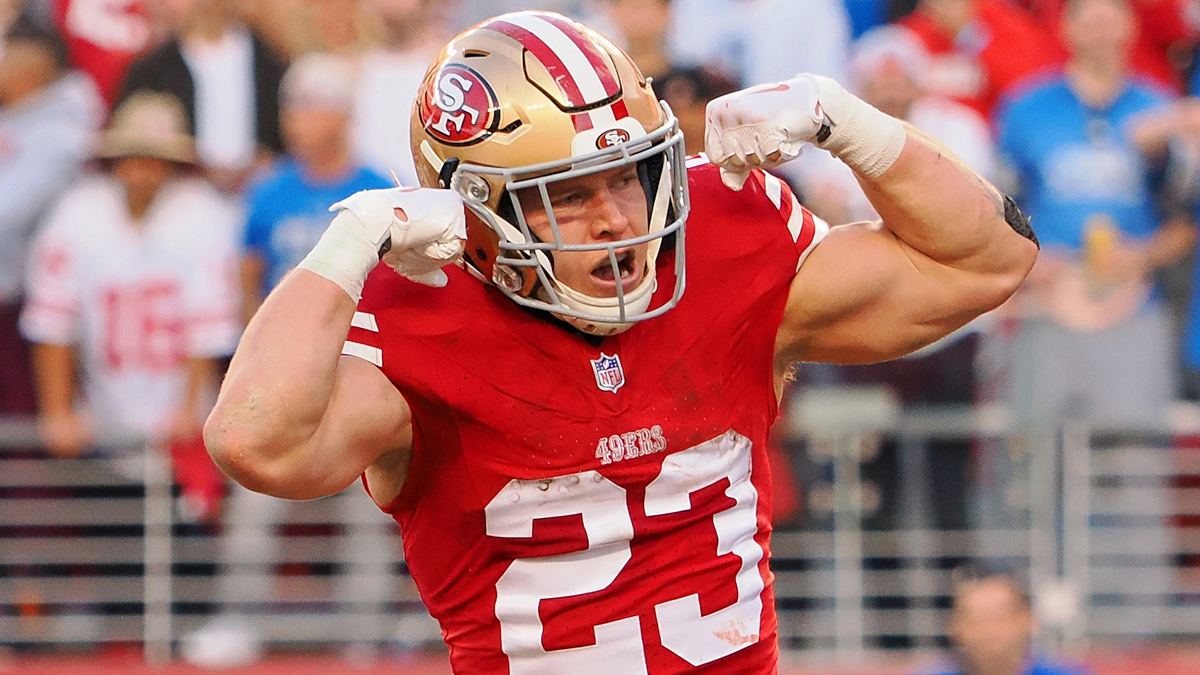SANTA CLARA — While many of the 49ers’ players were unaware of the NFL’s playoff overtime rules, quarterback Brock Purdy made sure he got things straight.
Purdy said he went to quarterbacks coach Brian Griese at the end of regulation to get squared away.
“He explained the rules to me, so I had an understanding of it,” Purdy said Tuesday on the day players cleaned out their lockers at Levi’s Stadium.
Stay in the game with the latest updates on your beloved Bay Area and California sports teams! Sign up here for our All Access Daily newsletter.
Coach Kyle Shanahan said he alerted the position coaches to remind their small groups after the Kansas City Chiefs scored a late field goal to send Super Bowl LVIII into overtime at 19-19.
“I did not cover it in a meeting on the Super Bowl week,” Shanahan said. “I don’t think that changes anything.”
There was nothing that happened in overtime to suggest the 49ers' unfamiliarity with the NFL's overtime process had any significance. It was just another interesting footnote from the longest Super Bowl ever played -- one that spanned 74 minutes, 57 seconds of game action.
San Francisco 49ers
The game Sunday was the first in which the NFL’s current rule on overtime came into play. Beginning with the 2022 season, both teams are allowed to possess the football in postseason games. If the game remains tied after both teams have one possession, then the next score wins the game.
The 49ers won the toss and elected to take the ball to open overtime.
Afterward, Shanahan cited the importance of the potential third possession producing the winning points.
“Our analytics [department] felt that was the best way to go, but as you guys know, I don’t always just go with that,” Shanahan said. “I take into account what they say, what they think is right, then I go off my gut in the heat of battle.”
The 49ers opted to keep their defense on the sideline to open overtime after that unit had just been on the field for 10 plays and a field-goal attempt to end the fourth quarter.
Although Shanahan did not cite the fatigue of his defense in his explanation after the game, 49ers general manager John Lynch brought up that factor to support Shanahan’s decision.
“When you’re playing [Patrick] Mahomes, you’re chasing him a lot,” Lynch said. “So there is a lot of effort that expended, and I think the context from there is you need some time to get fresh. All those things play into it, and those were sound decisions.”
Through regulation, the Chiefs’ only touchdown came on a quick-change possession after the 49ers muffed a punt. Mahomes made the 49ers pay with a one-play, 16-yard possession that began and ended with his touchdown pass to Marquez Valdes-Scantling.
“I knew what they felt going into it,” Shanahan said. “And when you think about that during the moments I have to make a decision, I think the type of game it was did match what they [analytics] felt was the best way to do.
“It did feel more like a field goal game. And our defense had been out there for a real long time right before that. So I didn’t feel at all to override that at the time.”
When overtime began, the teams had combined for 24 possessions and managed to score only three touchdowns.
Shanahan said if the game had been more like Kansas City’s 38-35 victory in Super Bowl LVII, he would have been more tempted to elect for his team to open overtime on defense.
“If it was like the Super Bowl the year before, the one that seemed more like a shootout, I think I might have felt differently,” Shanahan said.
Shanahan might be under intense scrutiny from outside the building after another agonizing postseason loss, but he said he felt secure in his own decision-making processes during the heat of Super Bowl LVIII.
"When you lose, you go over that stuff, always," he said.
"There’s nothing that I thought in the moment that I did wrong. I was proud of that. I liked the thought process behind everything."
Download and follow the 49ers Talk Podcast


